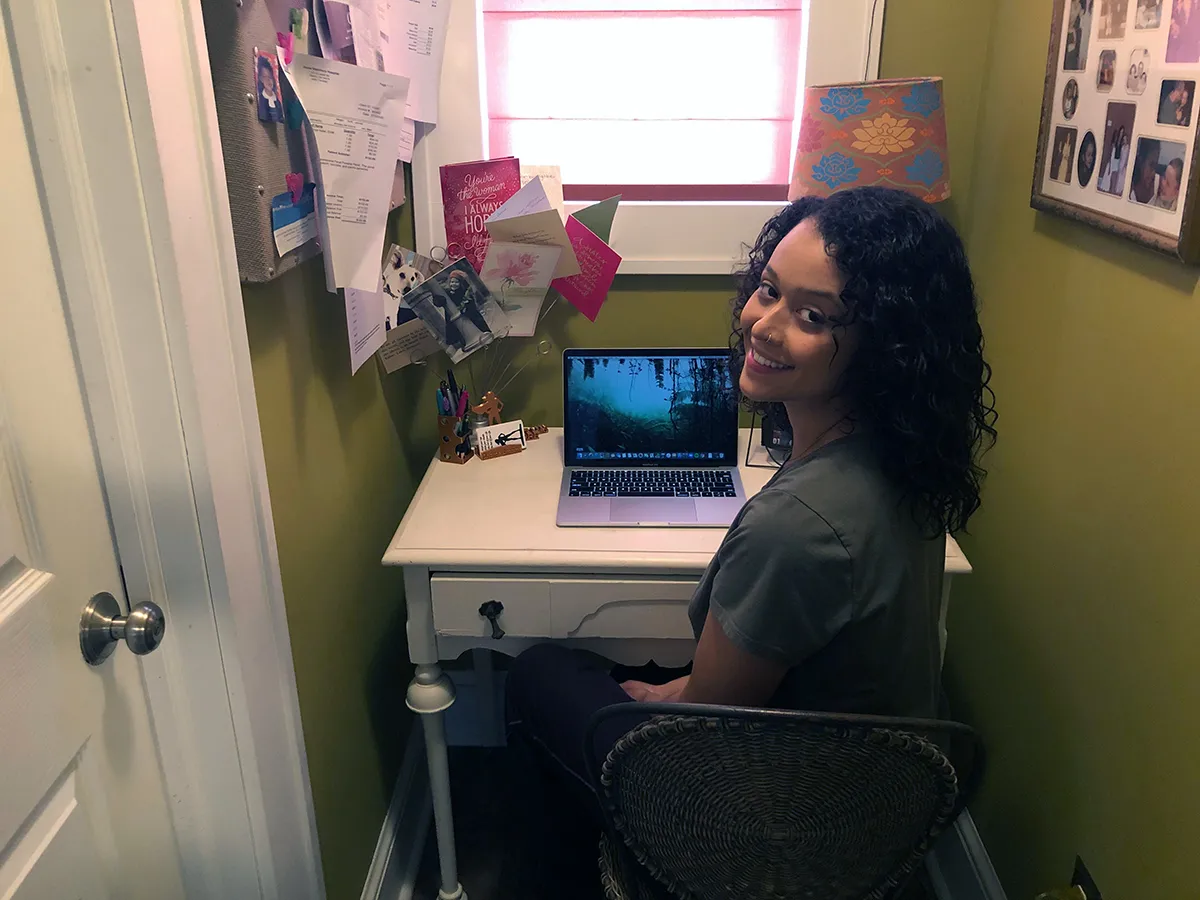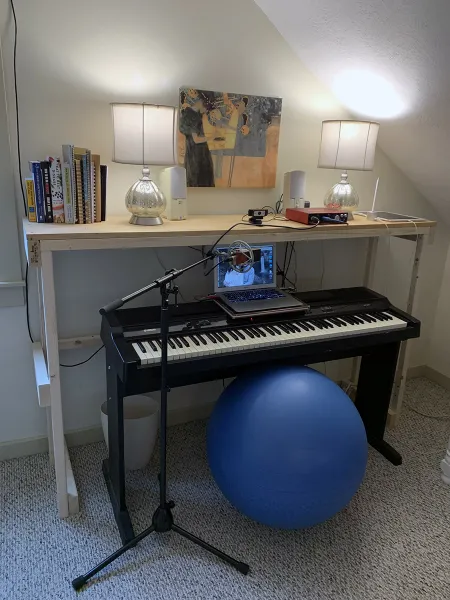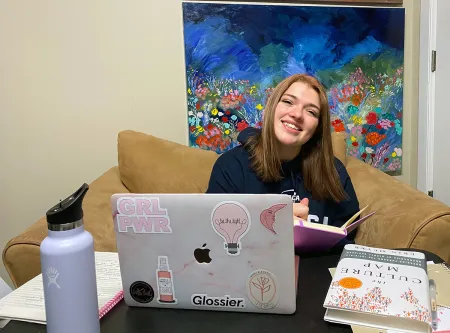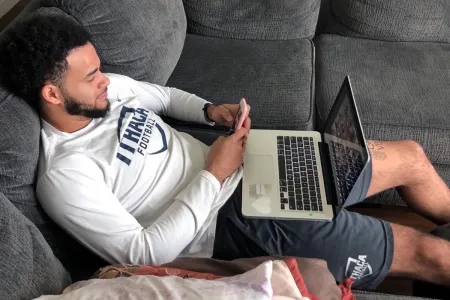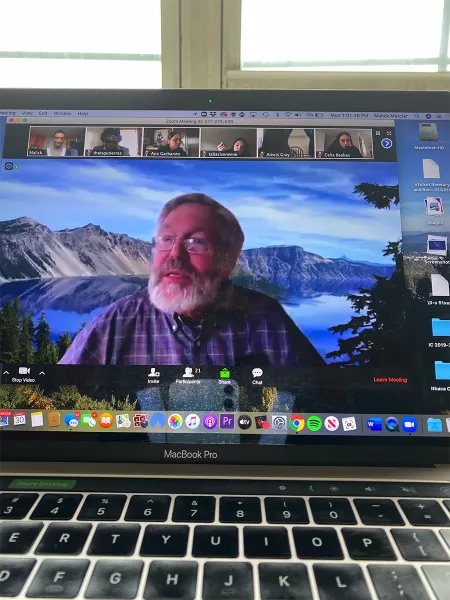Since the start of the week, Ithaca College students and faculty members have had to adapt to a “new temporary” of remote instruction in the wake of the global coronavirus outbreak. Hundreds of faculty members in each of IC’s five schools have begun teaching thousands of students virtually, using tools such as Zoom, Sakai and Microsoft Teams. And it’s been an adjustment for everyone, both on the front lines, and behind the scenes.
“My students’ first assignment was to clarify and share their specific goals for the remainder of the semester,” said Dawn Pierce, associate professor of performance studies in the School of Music. “I imagine, just like the rest of the world situation right now, that things will continue to be fluid even within the structure I’ve created to help foster the learning environment my students requested.”
